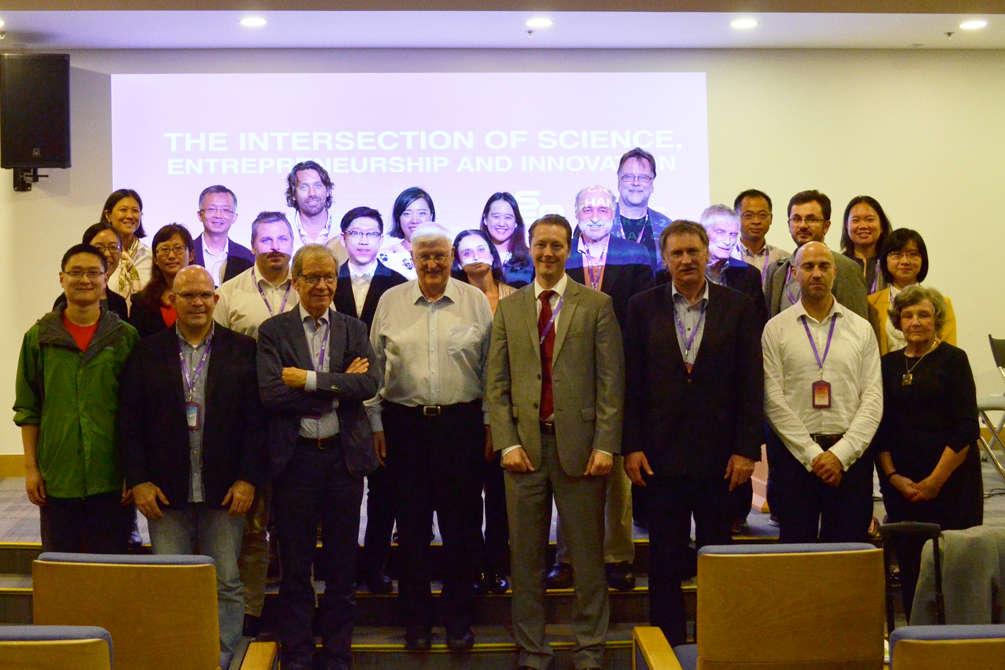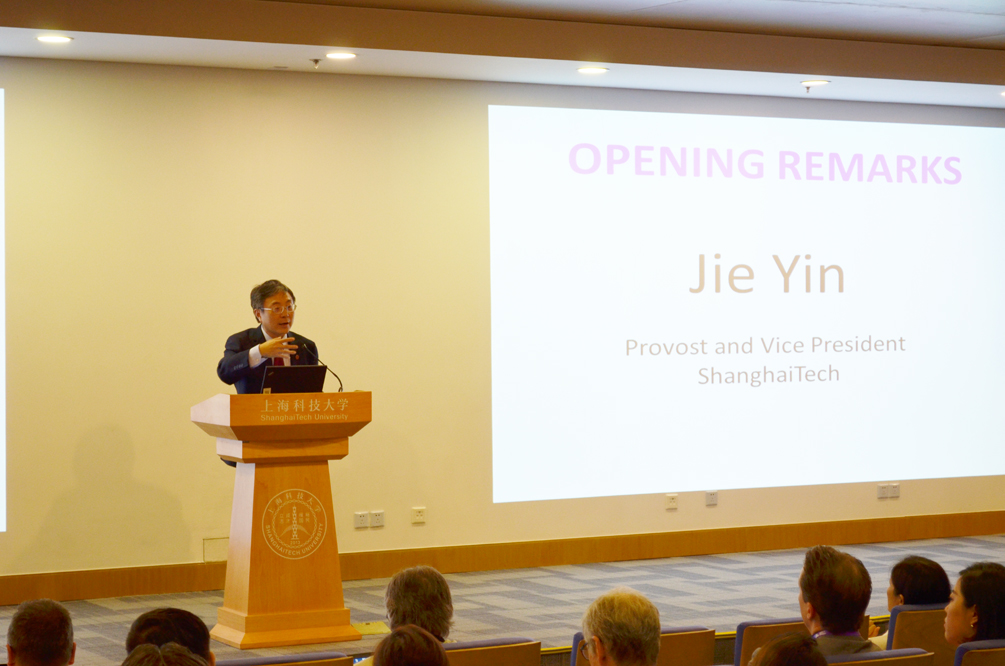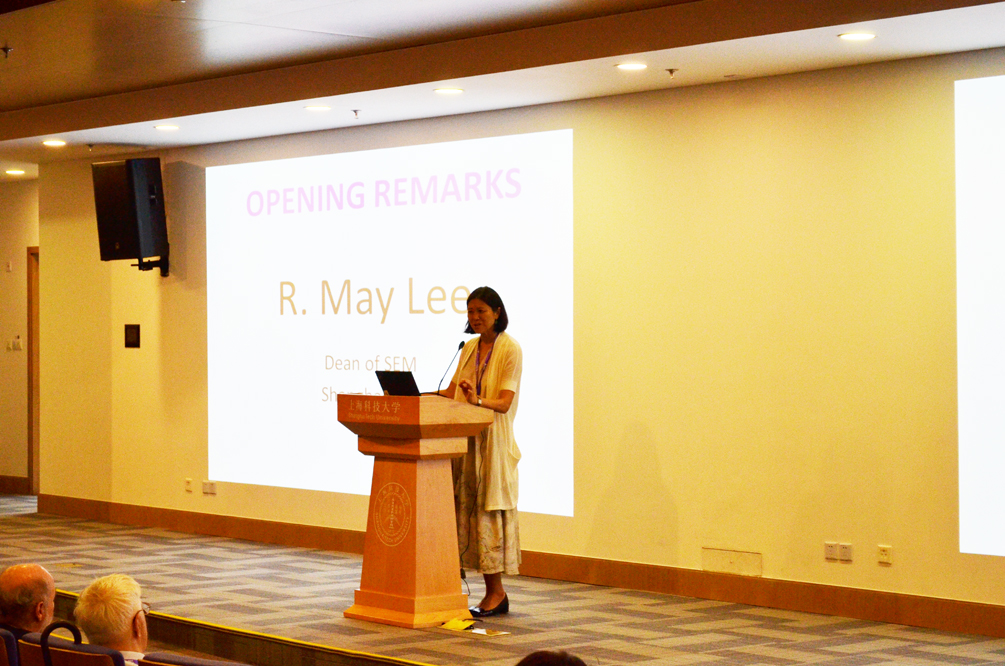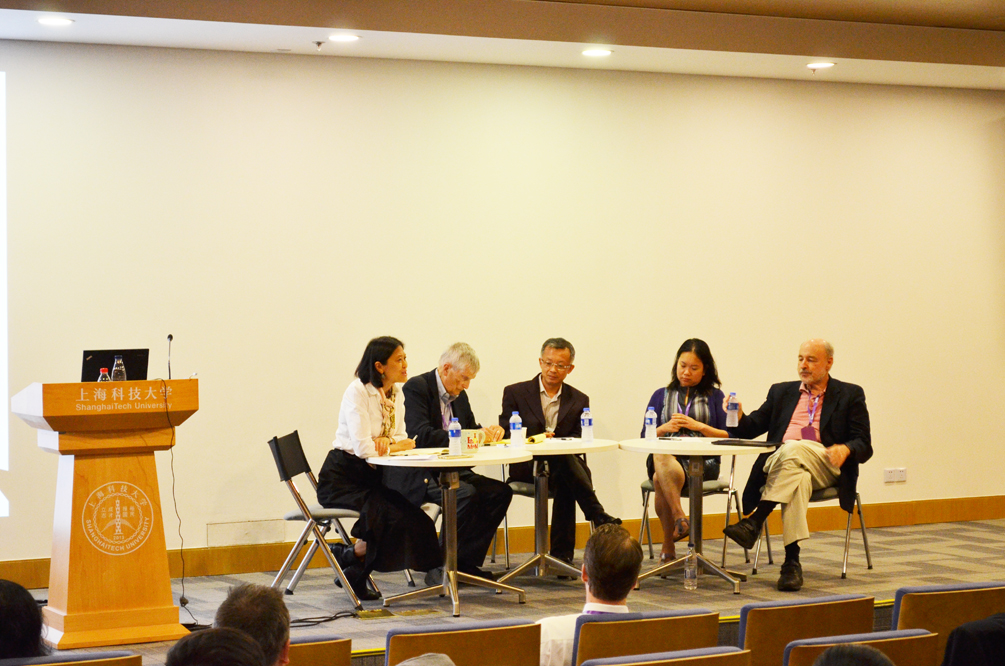
SEM hosted its first academic workshop on the Intersection of Science, Entrepreneurship,
and Innovation on October 21st and 22nd at our new campus in Zhang Jiang. 22
academicians from all over the world came to speak on the topic of spatial and
institutional factors that facilitate creative and entrepreneurial success in science and
business. The papers examined environments as small as a university all the way to cities
and regional structures which support innovation.
ShanghaiTech Vice President and Provost Dr. Jie Yin gave an opening address where
he extended a warm welcome to all the speakers and participants. Dr. Yin introduced
the development of ShanghaiTech University and emphasized SEM’s important role in
innovation and entrepreneurship education at ShanghaiTech. The Dean of SEM, May Lee,
introduced SEM’s educational mission revolves around imparting the skills and knowledge
of business, innovation and entrepreneurship to young scientists. She hoped that the
workshop could stimulate conversations, both theoretical and practical, on the nature
of innovation and entrepreneurship, the role of a city in creating the necessary ecosystem
to support these activities, and how Shanghai might apply some of this wisdom for its
future growth. Professor David Andersson then introduced the research areas of different
speakers and their potential impact on the research of SEM’s young faculty members.


The workshop began with a keynote speech by Professor Rogers Hollingsworth, Emeritus
Professor of History and Sociology at the University of Wisconsin - Madison and a leading
authority on the history of creativity in science. His address entitled Entrepreneurship
and Innovation in a Rapidly Changing Global Environment presented Professor
Hollingsworth’s multi-year research effort on Nobel, Lasker and other prize-winning
scientists and what makes them successful. He also shared his research on what factors
contribute to a successful lab. The keynote speech was followed by eighteen 45-minute
paper presentations divided into two parallel sessions. A closing panel discussion on the
creativity challenges that Shanghai would have to face as it restructures its economy concluded
the workshop.
May moderated the discussion, which featured Rogers Hollingsworth, Peter Gordon
(Price School of Public Policy, University of Southern California), Karen King (Martin
Prosperity Institute, University of Toronto), and Alex Wang, former General Manager
of edX China. Each speaker brought a new lens to the topics of entrepreneurship and
innovation in the science and technology sector.

The workshop resulted in several substantive achievements, such as tentative agreements
regarding special issues of SSCI-indexed journals and invited contributions to edited
volumes with international academic publishers. The participants also reached an
agreement to institutionalize this event as an annual conference, with a gradual expansion
so as to reach a growing international constituency of scholars. Moreover, several SEM
professors initiated individual research projects together with colleagues from Europe,
North America, and elsewhere. The conference attracted paper presenters from four
continents, and non-presenting participants from Chinese universities in several cities
as well as members of the international community of entrepreneurs in Shanghai.
SEM pursues the creation of transformative knowledge to illuminate and inform
entrepreneurship and innovation in the science and technology sector by leveraging the
synergy between the behavioral sciences and economics in research and through vehicles
such as this workshop. We aim to generate new insights that in turn generate new
knowledge and additional research questions, and believe our approach to business and
science will yield valuable nuggets for policymakers and businesses.



